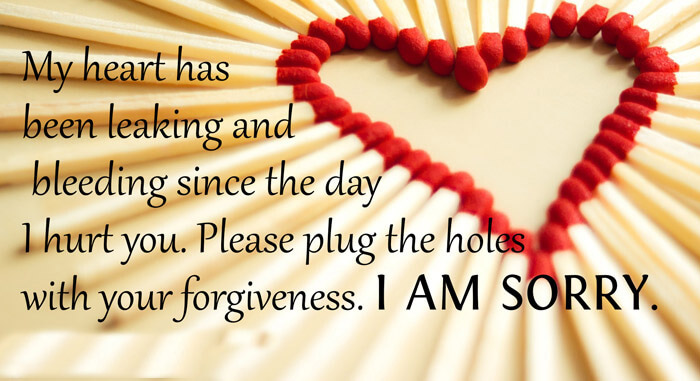Analyzing Emotional Expression
I love you im sorry –
The phrase “I love you, I’m sorry” is a complex and powerful expression of emotion. It can be used to express a wide range of feelings, including love, guilt, regret, and longing. This phrase is often used in situations where someone has hurt or wronged another person. It can be a way of apologizing for past mistakes and expressing a desire to make things right.
I love you, I’m sorry, I know it’s a strange thing to say. But it’s the only way I can express how I feel. I’ve been listening to the normal thing lyrics and they just remind me of how much I love you.
I know I’ve made mistakes, but I hope you can forgive me. I promise to be better, to be the man you deserve.
Psychological Factors
There are a number of psychological factors that can contribute to the use of this phrase. One factor is guilt. When someone feels guilty about something they have done, they may use this phrase as a way to express their remorse. Another factor is regret. When someone regrets something they have done, they may use this phrase as a way to express their wish that they could go back and change the past. Finally, longing is another factor that can contribute to the use of this phrase. When someone longs for something, they may use this phrase as a way to express their desire for that thing.
In the tapestry of life, where threads of love intertwine, there are moments when a heartfelt apology weaves its way into the fabric. Like the words “I love you, I’m sorry,” that echo through the halls of time, the gentle whispers of Good Luck Charlie remind us of the enduring power of forgiveness.
As we navigate the complexities of human emotions, let us remember that even in the face of adversity, love has the strength to mend broken hearts and stitch together the torn threads of relationships.
Literary and Cultural Perspectives

The phrase “I love you, I’m sorry” holds immense significance in literature, poetry, and film, transcending cultural boundaries and resonating with audiences worldwide. This evocative expression encapsulates the complexities of human emotions, conveying both love and regret.
In literature, the phrase often serves as a pivotal moment, revealing the characters’ inner turmoil and the weight of their past actions. For instance, in Emily Brontë’s classic novel “Wuthering Heights,” the tormented protagonist Heathcliff utters these words to his beloved Catherine, expressing both his undying love and his profound sorrow for the pain he has caused her.
Poetry
In poetry, the phrase “I love you, I’m sorry” is often used to explore the nuances of love and loss. Pablo Neruda’s “Sonnet XVII” captures the bittersweet nature of this sentiment, as the speaker yearns for a lost love while acknowledging their own culpability:
I love you, I’m sorry, but I have to leave,
To find my own path, to live my own life.
I know it’s hard to hear, but please believe
That I still love you, even though I’m gone.
Film
In film, the phrase “I love you, I’m sorry” often carries dramatic weight, underscoring the consequences of characters’ choices and the impact of their actions on others. In the 1999 film “American Beauty,” the protagonist Lester Burnham utters these words to his estranged daughter Jane, expressing both his love for her and his regret for his own failures as a father.
The phrase’s versatility allows it to convey a wide range of emotions, from deep remorse to heartfelt apology. It serves as a reminder that love and regret are often intertwined, and that the complexities of human relationships cannot be easily defined.
Communication and Conflict Resolution: I Love You Im Sorry

The phrase “I love you, I’m sorry” is a powerful tool for facilitating communication and resolving conflicts. It acknowledges wrongdoing, expresses remorse, and opens the door for reconciliation.
When a person says “I love you, I’m sorry,” they are not only apologizing for their actions but also expressing their love and care for the other person. This can help to defuse anger and create a more positive atmosphere for communication.
Sincerity and Authenticity, I love you im sorry
It is important to note that the phrase “I love you, I’m sorry” should only be used when it is sincere and authentic. If it is said simply to placate the other person or to avoid conflict, it will not be effective.
When the phrase is used sincerely, it can help to mend relationships and restore trust. It shows that the person who said it is willing to take responsibility for their actions and that they value the relationship.
The remorseful plea of “I love you, I’m sorry” echoes through the corridors of our hearts, seeking absolution. Like the poignant lyrics of “Gave You I Gave You I” found here , the melody of love and regret entwines, reminding us of the fragility of human connections and the profound power of forgiveness.
In the realm of love and loss, “I love you” and “I’m sorry” dance like a bittersweet symphony. Yet, amidst the sorrow, a glimmer of hope shines through. Like the endearing characters in Good Luck Charlie , we find solace in the bonds that unite us.
For in the tapestry of life, forgiveness and love have the power to mend broken hearts and guide us towards a brighter tomorrow.
In the bittersweet symphony of “I love you, I’m sorry,” Gracie Abrams’ “Tough Love” echoes the poignant struggle. Her lyrics paint a canvas of longing and regret, a testament to the complexities of human connection. Amidst the gentle strumming and raw vocals, Abrams’ message resonates, reminding us that sometimes the toughest love is the one we need to hear, even if it breaks our hearts.